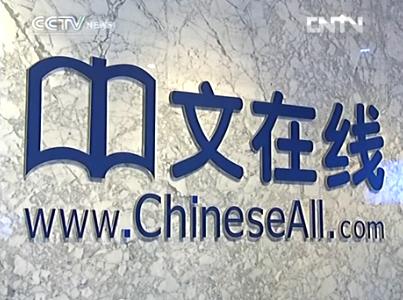
 |
Student Han Yingya said, "I began reading e-books during my undergraduate years. I think firstly, e-books can save me money, because e-books are cheaper and sometimes free. Secondly, it’s convenient, it’s impossible for you to carry a lot of books on a train or when you’re on the move.
Han says at least half of her schoolmates are also avid e-readers. At the end of 2010, Amazon, the biggest online book retailer, announced that for the first time, e-book revenues surpassed those of paperbacks.
"Chinese-all" is a major digital publisher in China. Established in 2000, it’s been the country’s trailblazer in the field of e-publishing. The company has cooperated with over 400 publishing houses and 2000 established writers to digitize their works. Now they publish 100,000 e-books every year.
They have also released web novels on their websites. Some of their most popular e-novels are now in the process of being adapted into films or TV series.
With about 60 million users, their content is available on a host of smartphones, tablets and PCs.
Tong Zhilei, CEO of E-publisher “Chinese-all”, said, “At the Frankfurt Book Fair in 2009, experts predicted that e-books sales will overtake paperbacks globally by 2018. Next year, the US’s Weekly World News will end their print publication, to focus online content. That’s the sign of the times.”
Tong says the price for e-books can be as low as 2 yuan. And users can spend 30 yuan to freely browse all the website’s content.
But industry insiders say piracy is the main obstacle standing in the way of the development of e-books. It’s a fight that "Chinese all" is engaged in.
















 Detective-Conan-themed Lawson convenience store opens in Shanghai
Detective-Conan-themed Lawson convenience store opens in Shanghai


![]()
